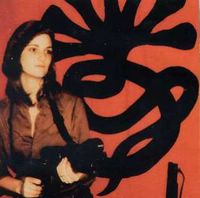"Downfall," "Gunner Palace": Some Thoughts
In some ways, Downfall is more of a historical document than it is a movie. A painstakingly authentic dramatization of Adolf Hitler's final days in his underground Berlin bunker during April of 1945, this German-language film has its share of dramatic flaws. It meanders occasionally and could have withstood a bit more discipline in the editing process, clocking in at nearly three hours. And it is almost too ambitious for its own good, offering a panoply of characters whom director Oliver Hirschbiegel juggles with varying degrees of success.
And yet, Downfall is an often amazing, always powerful film.
The movie drew criticism in its native Germany for its allegedly sympathetic portrait of some Nazis. I'm not certain what Nazis those critics are referring to -- certainly not Dr. Joseph Goebbels' true-believer wife, Magda (Corinna Harfouch), who poisons her six children rather than risk them growing up in a post-Nazi world.
At any rate, I think there's a sizable difference between a sympathetic approach and one that simply humanizes its subjects. Part of what makes Downfall exceptional is its determination to add flesh and blood to these monsters of history. And besides, Bruno Ganz's mesmerizing portrayal of Hitler isn't likely to elicit much sympathy from German movie audience, especially his enraged pronouncements to his generals that the German citizenry deserved to be killed because they'd proven themselves to be so weak.
Besides, it seems to me that it is far more unsettling to examine the human side of the psychotic, to observe the recognizable strains of humanity that mask evil. From Ted Bundy to Timothy McVeigh, history is filled with examples of the easy-going, charming -- even likeable -- mass murderer. Those are the truly scary. Less fearsome is the slobbering, wild-eyed madman on the street corner; you already know to steer clear of that guy.
***
On the topic of war movies, the documentary Gunner Palace presents a decidedly ambivalent view of the American occupation in Iraq. Husband-wife documentary makers Michael Tucker and Petra Epperlein might not have meant so much moral ambiguity, as a good number of the U.S. soldiers spotlighted in the film come off as, well, young, cocky and mean-spirited assholes.
Most don't, of course, and even the more insufferable troops followed in the documentary are easy to empathize with, being stuck in a country where every unaccounted-for item on the side of the road can spell their demise.
In the long run, that ambivalence just might be what makes Gunner Palace a more illuminating view of the Iraq War than, say, a polemic like Fahrenheit 9/11. Despite some sloppy narrative techniques in Palace, particularly an annoyingly melodramatic voiceover by Tucker, the movie effectively presents the warts-and-all hell of war.























2 Comments:
Do those young men come off as cocky (the only female was Grimes and she seemed pretty humble)? That wasn't Times Square they were patrolling. I think you underestimate the psyche you need to prop up to survive this kind of duty. IED may sound like another acronmy to you, but from everything I hear its a preoccupying worry for everyone over there. Imagine each time seeing a stray bag on street that your next thought is being transported to a German hospital to recover from a field amputation.
Sorry - I don't find those people insufferable. If cockiness is the survival mechanism that gets them home in one piece - I'll suffer it.
I understand your sentiment, but I think you might have misinterpreted my thoughts on the movie.
Post a Comment
<< Home